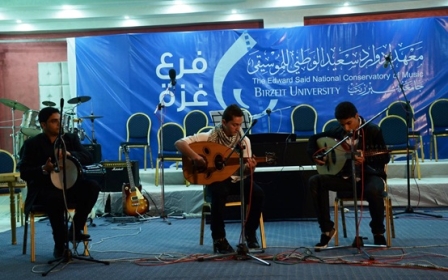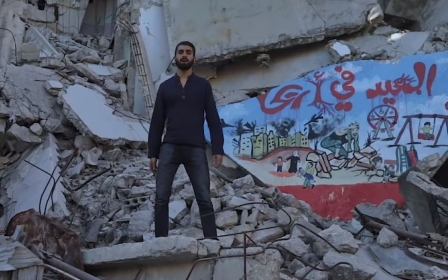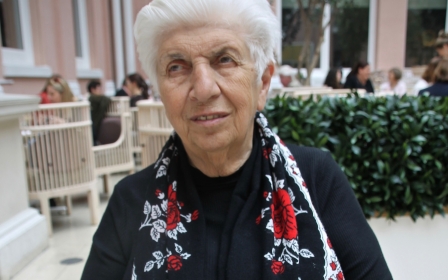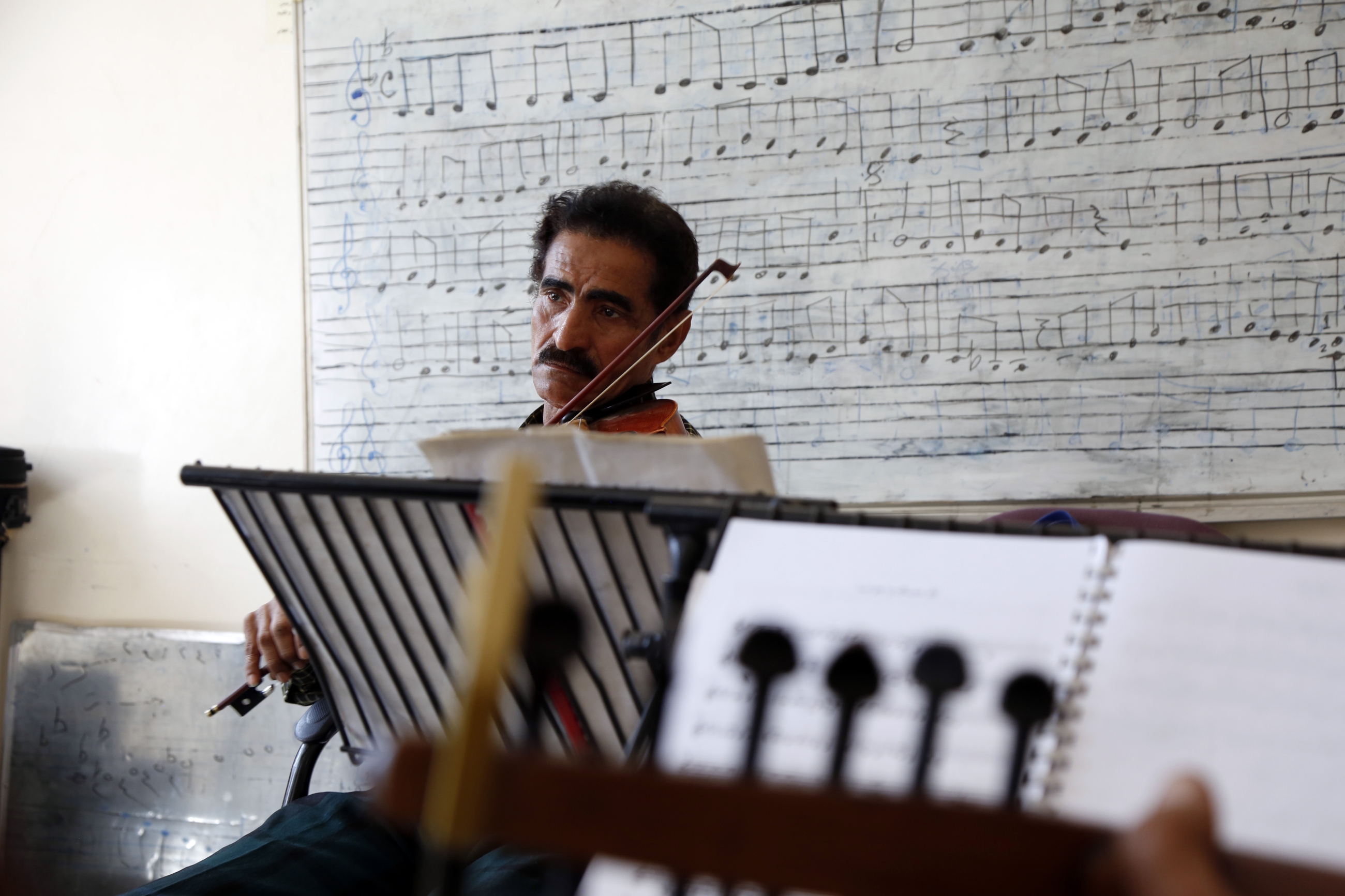
In pictures: Meet the man trying to rescue Yemen's musical heritage
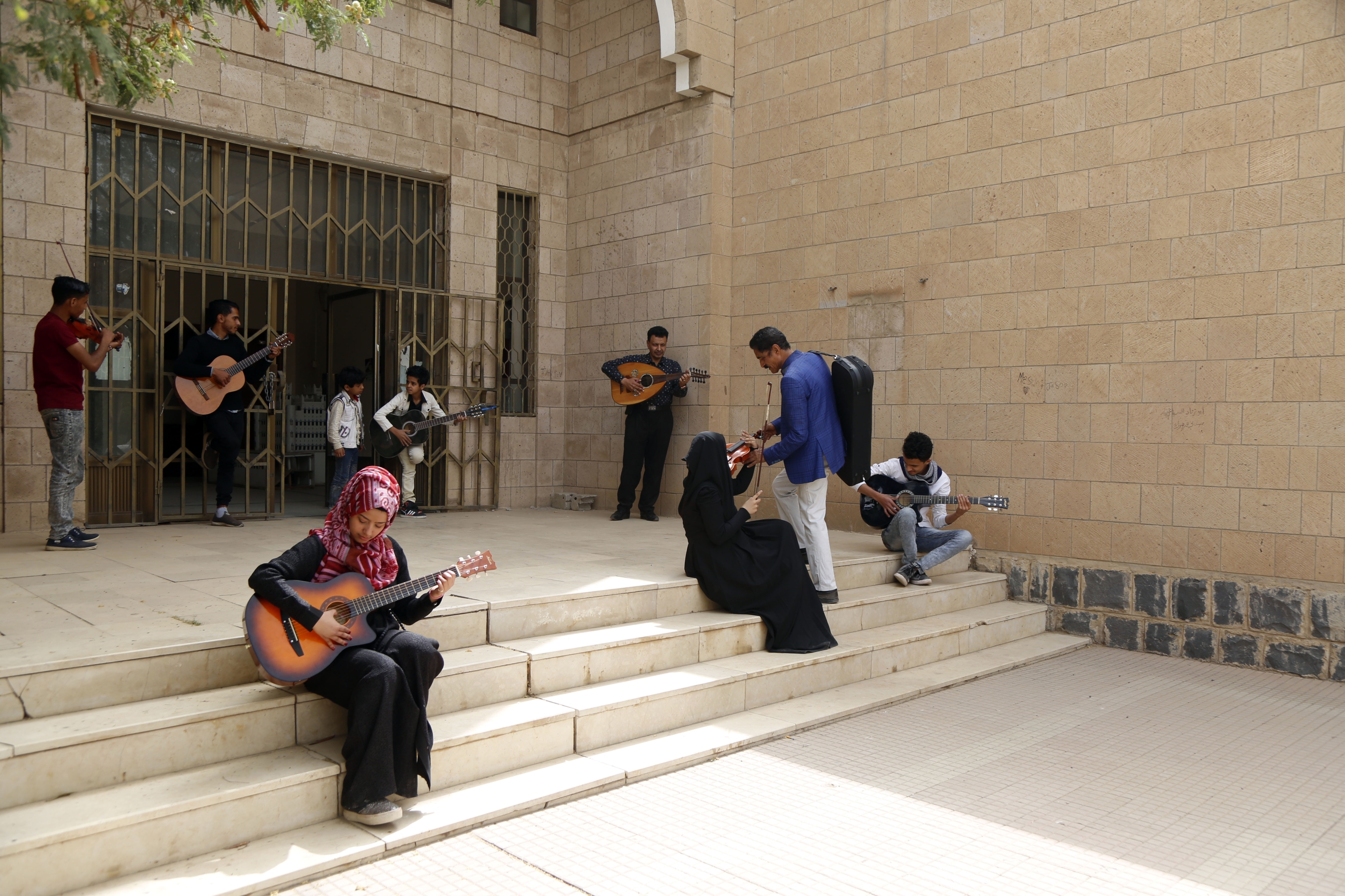
In March 2018, Yemeni musician Abdullah al-Daby set up a music institute in the capital, Sanaa. A former member of the country's National Orchestra, 54-year-old al-Daby hopes his students will go on to form their own orchestras and perform around the country, and maybe even abroad. His other priority is to save old Yemeni songs, traditionally passed on by imitating and memorising, from potential obscurity. Al-Daby is now recording these in musical notation that can be shared with future generations. (All photos by Mohammed Hamoud)

Auditions are held every year to test the students' abilities in singing and playing various instruments before they enrol. But al-Daby says he wants to help anyone with a desire to learn: "If they can sing, I let them sing," he says. "If they can't play an instrument well, I let them go back to singing. If they can't sing or play, I offer them some intensive lessons. I don't like to deprive anyone from learning."
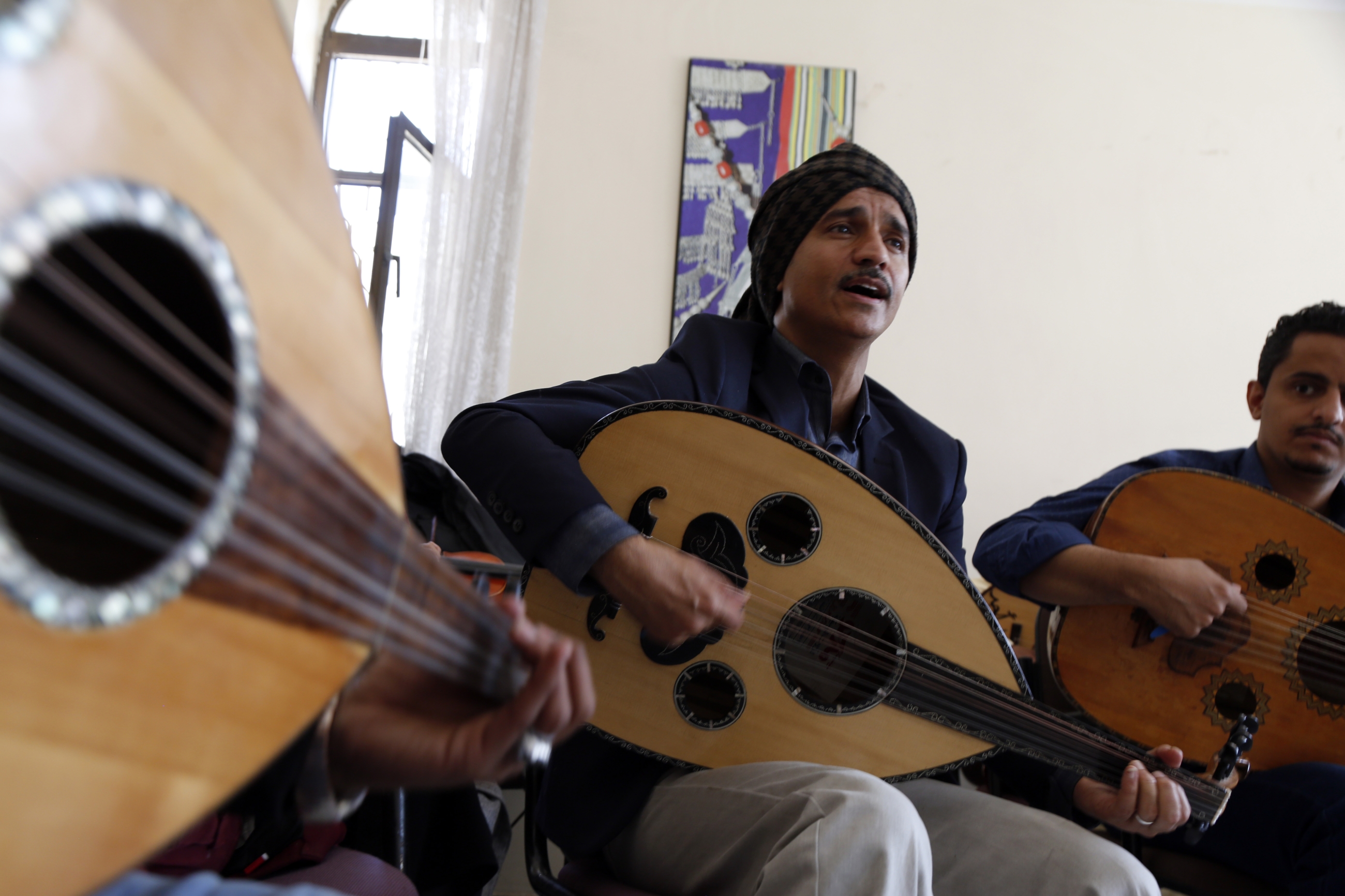
All of al-Daby's classes at his Higher Institute for Music are free of charge. Otherwise no one could afford them: "The war has had a financial impact on us - we somehow still have to support ourselves even though we lost our incomes." Al-Daby says he currently receives no funding and finances the classes through personal loans. "We have to study and teach music, especially in this developing country," he says.
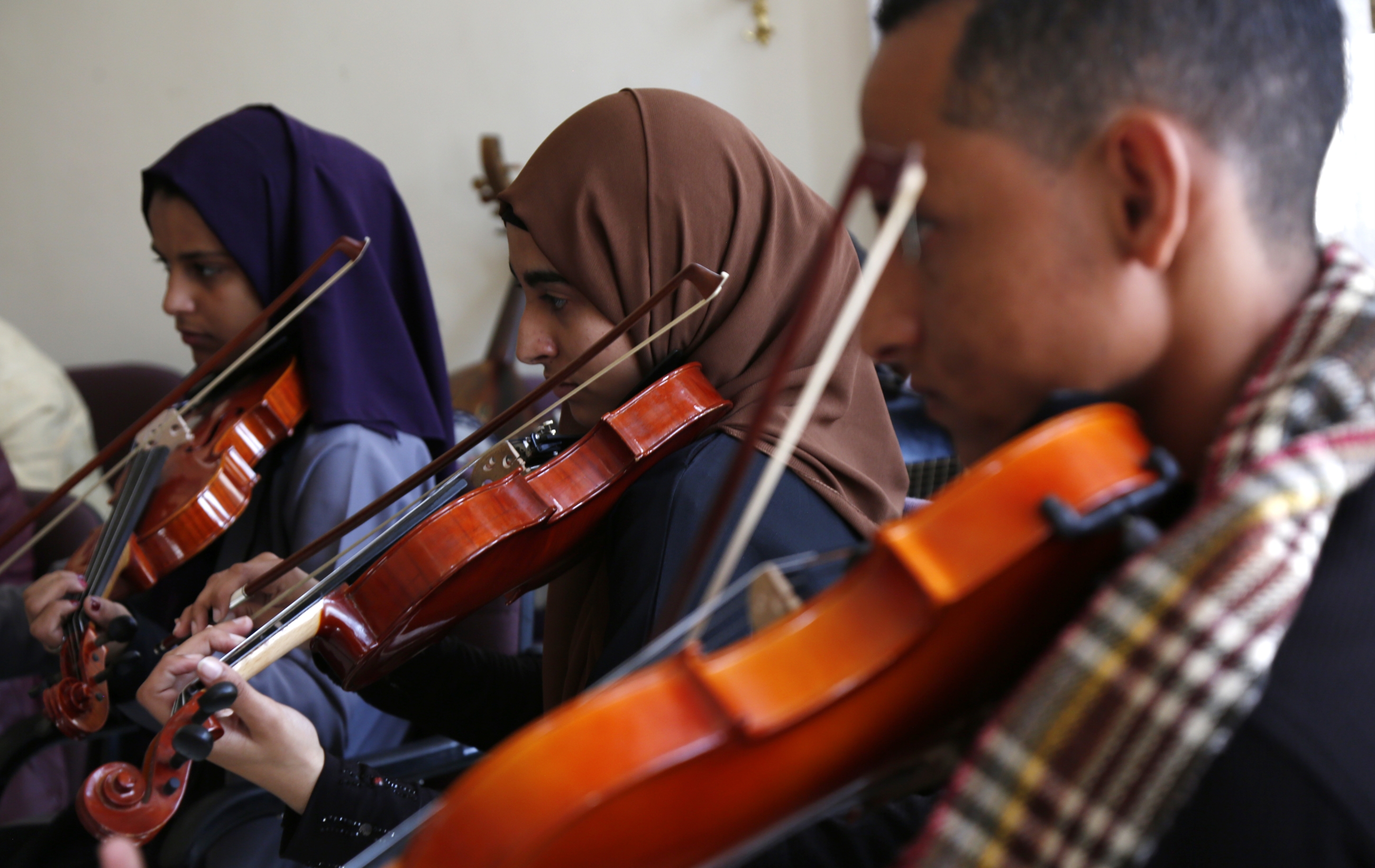
Students can choose to learn to play western or oriental music and instruments, including the oud, guitar and violin. Al-Daby provides most of the instruments himself, which he acquired during his years in the national orchestra, or bought during his performance trips abroad. The Yemeni Ministry of Culture also donated some of the instruments and a handful of his students from wealthier families bring their own.
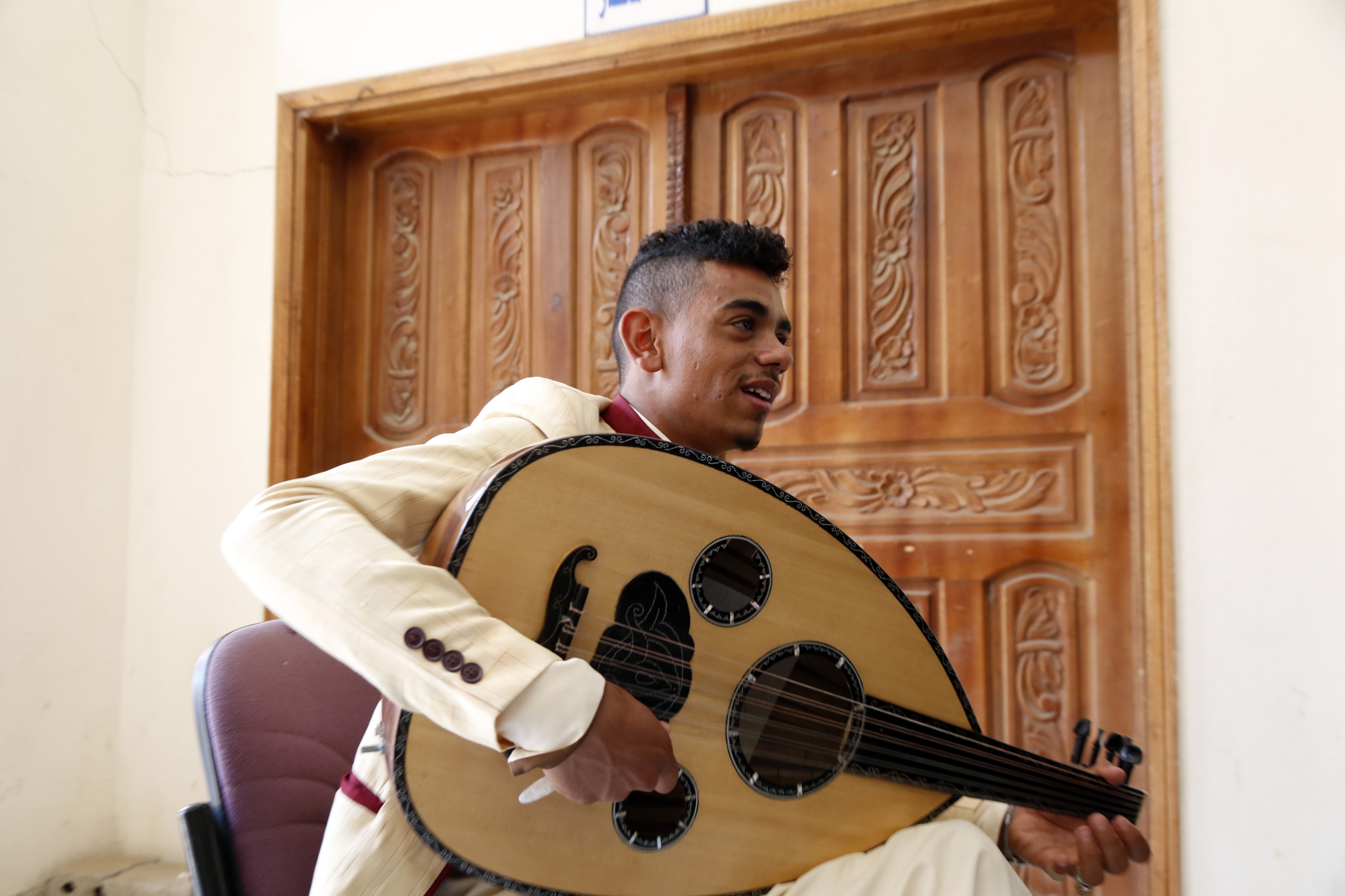
The timetable is divided into four-week terms, with al-Daby teaching four to five lessons per day. Classes are flexible to suit individual student's schedules. University students can attend just 12 hours of classes a week, as opposed to those with fewer commitments. When students eventually graduate, they receive a diploma issued by the Ministry of Culture in Sanaa.
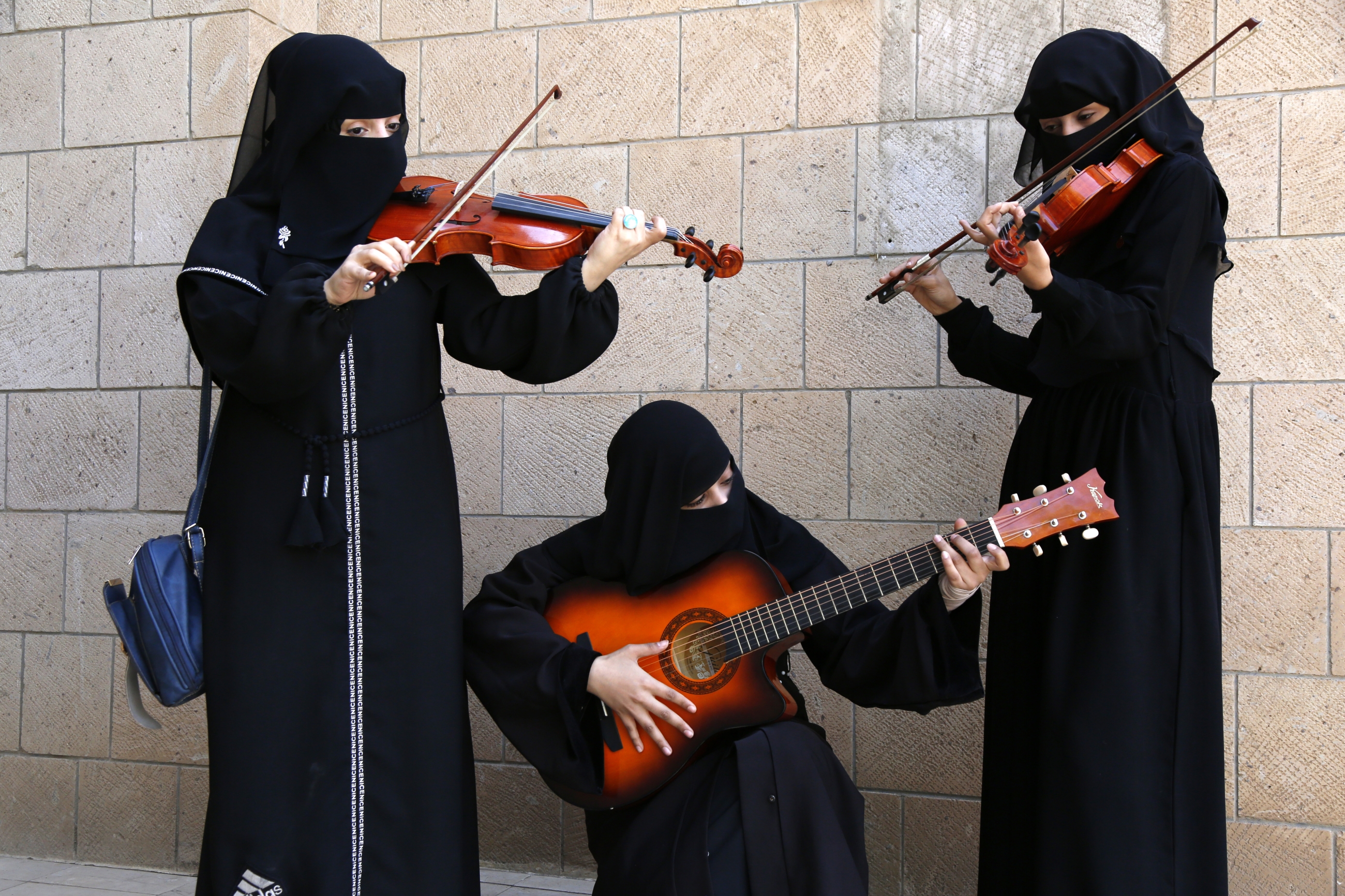
When he was in the National Orchestra, al-Daby says there were only seven female members. Today, most of his students are women. Rania al-Shawkani, aged 26, says she found a sense of belonging within the institute, music being a "language that makes [me] feel peaceful".
However, being a woman has its own challenges: "We do face some difficulties," al-Shawkani says. "For example, for some families the distance is an issue because tradition dictates that women shouldn't travel far without a male relative."
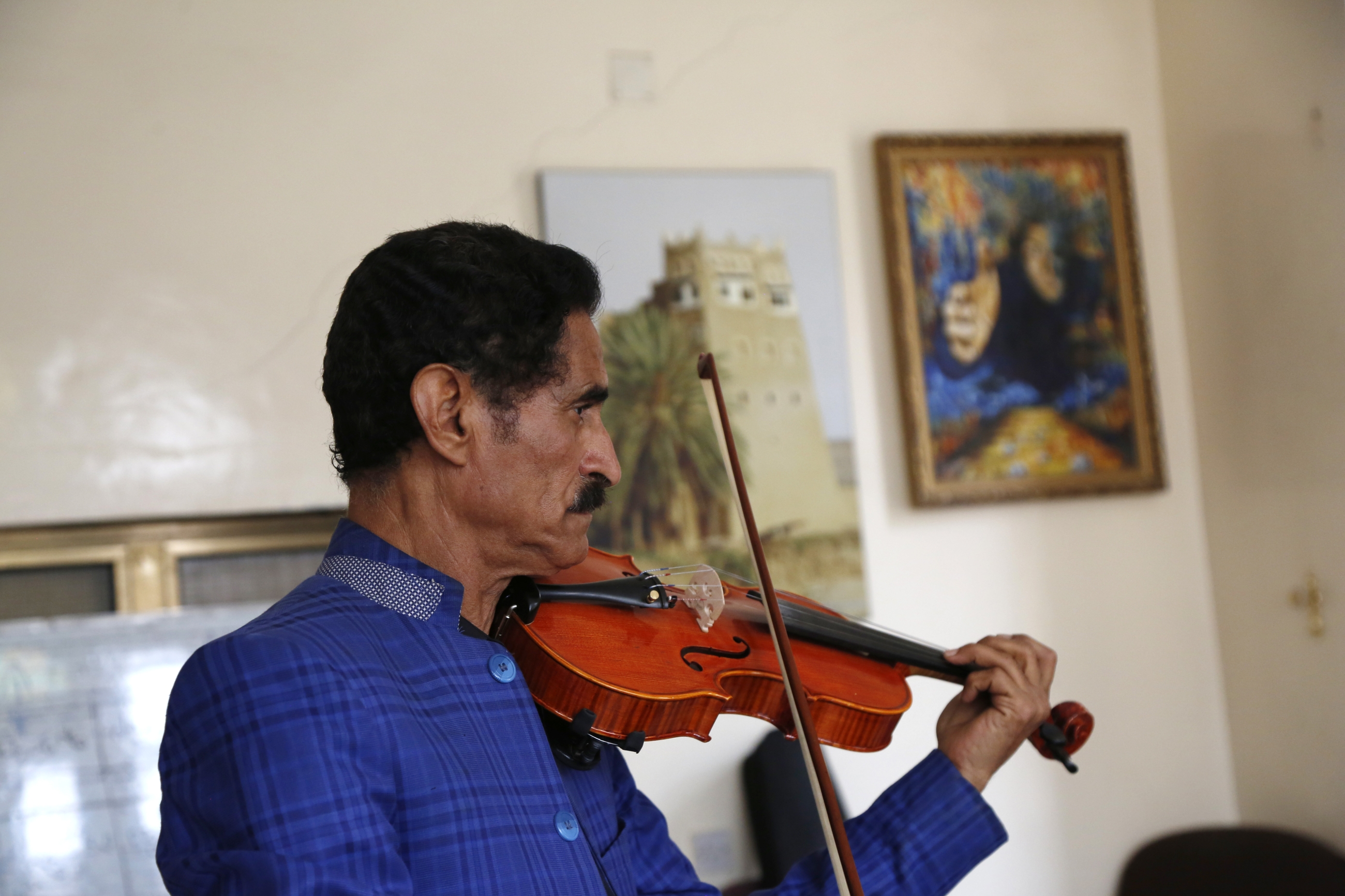
For al-Daby, opening this institute was a passion and a mission. Music played a more active role in the country in the 70s. Back then, he says, they used to be taught music by professional teachers from abroad. "After the assassination of [then-president Ibrahim] Hamdi, that institute was closed down as the state at that time was not interested in the arts. So they converted the National Orchestra into a band that would mainly perform at events." Though even this group eventually fizzled out by 2010, al-Daby decided to pick up the fight and set up his own academic institute for music in Yemen.
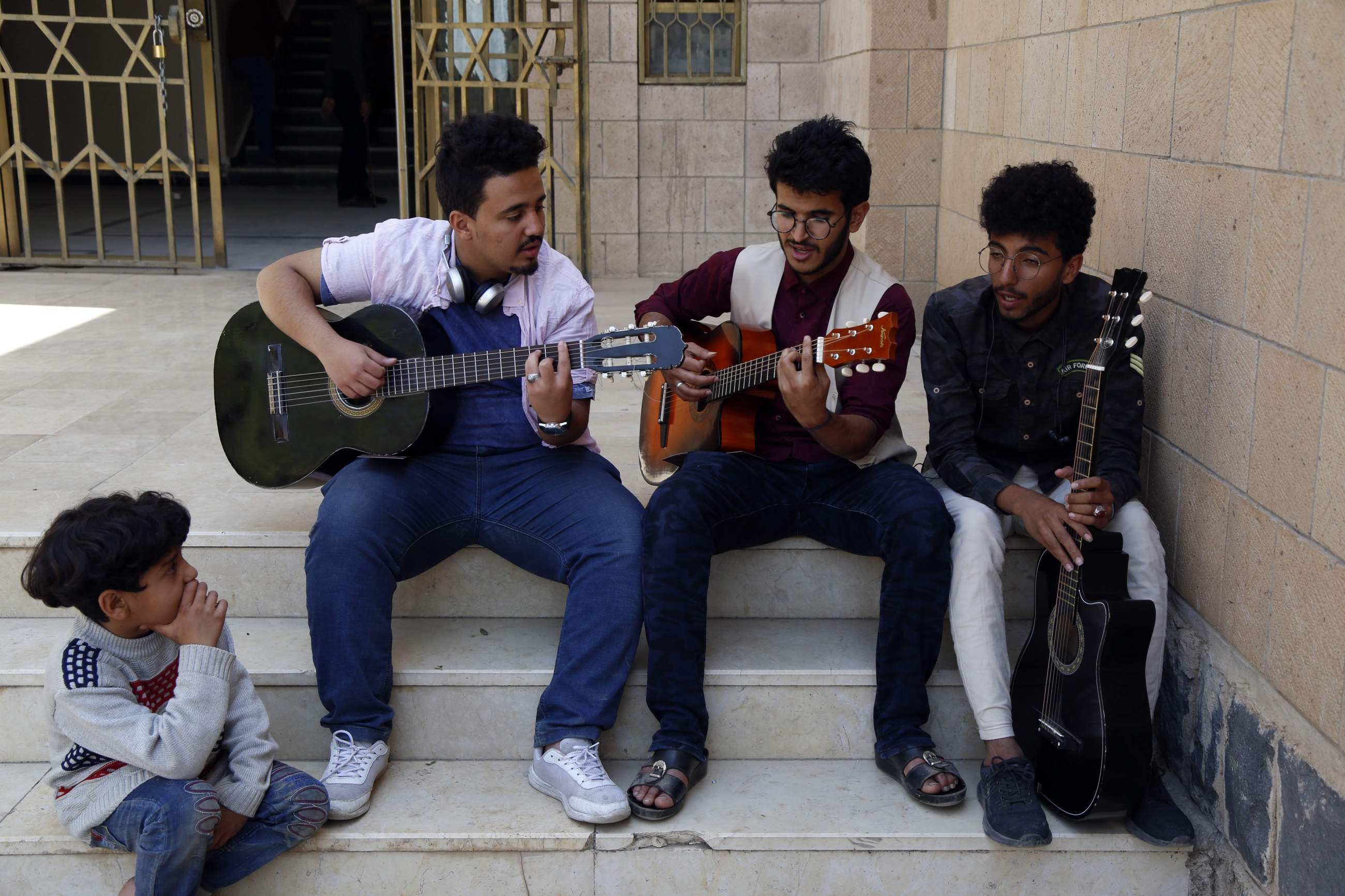
But the ongoing conflict has had more than a financial impact. More than 100,000 people have been killed since a Saudi-led coalition intervened in the country's war against the Houthi movement in 2015. Al-Daby and his students do their best to carry on. "On days when there are air strikes, we have to leave the institute and go to a park nearby to teach the students," al-Daby says.
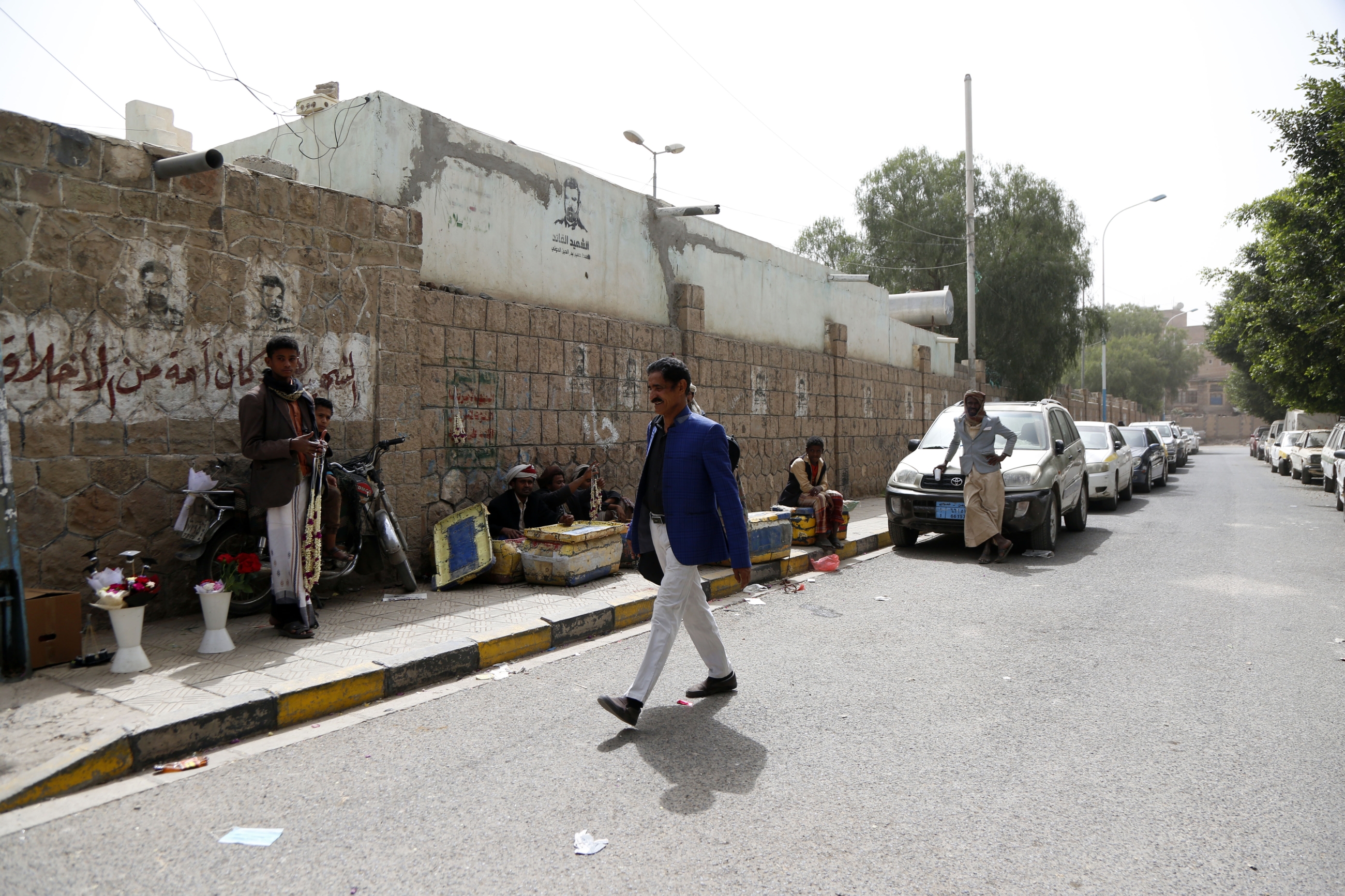
The institute is in its third academic year now but al-Daby says they desperately need more resources to keep it going – the instruments are falling apart and they need more notebooks for the students. "We only have nine violins...we don't have a piano, so we practice the musical scale using a western keyboard, oud, violin, or guitar instead.
"We also need more money to buy new instruments, and to help some of the poorer students with travel costs, who have to travel from far - some five or six kilometres away. Even I walk around seven kilometres a day to the institute.”
Middle East Eye propose une couverture et une analyse indépendantes et incomparables du Moyen-Orient, de l’Afrique du Nord et d’autres régions du monde. Pour en savoir plus sur la reprise de ce contenu et les frais qui s’appliquent, veuillez remplir ce formulaire [en anglais]. Pour en savoir plus sur MEE, cliquez ici [en anglais].


